#stop kashmir war
Text
so uh. DCIB is doing a Pathaan Prime watchalong this Sunday. you can guess what i'll be doing this Sunday
#film: pathaan#pathaan#shah rukh khan#srk#deepika padukone#bollywood#local gay watches Pathaan (and loses their sh*t while doing so).txt#local gay watches Bollywood.txt#Pathaan? finished. sh*t? lost. notebook? open and ready to resurrect a designated war criminal for that toxic OT3 loveline#that's if he's even dead in the first place (i do not think he is)#yes miss Deepika we know that flirting with John was a distraction but there was palpable tension there#and Jim deserved better rip. f*ck the government f*ck the mandatory 'ask not what your country...' spiel during the final faceoff#justice for the man and his trauma#Shah Rukh ily but when i watch this again i'm muting you through that line#and don't get me started on Kashmir. we're not going to talk about that#anyway there is a scene in my notes app talking about trauma and f*cking around and putting labels on things#and being attracted to war criminals and i need to go and flesh it out. no you're not going to be able to stop me
12 notes
·
View notes
Text
.
#i cant read anything without thinking of world war 3#the world is Such a mess rn#youve got israel and palestine w the us euro india whoever else pushing for israel meanwhile other side youve got#iran pushing for hamas and mujahedeen from dif regions showing up#all while zelensky the biggest fan of the us on the planet supports israel while hamas thanks ukraine for sending them weapons???#youve got what's happening in armenia w azerbaijan and turkey and thats a whole fucking mess too#youve got ukraine another geopolitical nightmare#china seems to be gearing up for shit in taiwan#i keep hearing about baddd conflicts going on in india and im sure kashmir isnt great#and im sure pakistan siding w palestine and india w israel will go great#youve got kosovo getting bad again and it might get worse and turn into a whole thing#great!!!! wonderful!! brilliant brillaint state of affairs#how the fuck are we gonna avoid a world war exactly#could this species for once stop fucking slaughtering and opressing each other maybe#we never should have invented weapons like the ones we have. never. guns bombs atomic bombs airplanes drones none of it#we should have stuck with fucking bows and spears and swords and other shit like that
6 notes
·
View notes
Text
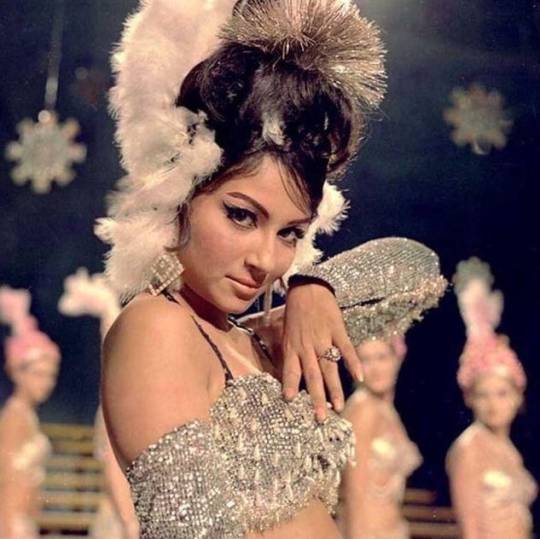

Propaganda
Sharmila Tagore (Apur Sansar, Kashmir ki Kali, An Evening in Paris)—She was adorable, an actual princess (through marriage), the first woman to wear a bikini in a Hindi film, and had, I would argue, the most iconic beehive hair in film history.
Pola Negri (The Wildcat, Men, A Woman Commands)—Legally obliged to submit her as she's from Poland, but also it is one of the greatest stars of silent film, both in Hollywood and Europe, so she has to be here. The og femme fatale and a fenomenal dramatic actress. And just so hot in this 1920s vamp style. Obviously her career slowed down in America with the introduction of sound movies, because of her accent and low voice. I'd say her voice is so much hotter thanks to that, but I'm just a simple simp. But then she made movies in Germany, and after the war she was even offered Gloria Swanson's role in "Sunset Boulevard'' but she declined. She was probably bisexual as after romances with Charlie Chaplin and Rudolf Valentino in the 20s, since the 1940s she lived with her 'female friend'.
This is round 3 of the tournament. All other polls in this bracket can be found here. Please reblog with further support of your beloved hot sexy vintage woman.
[additional propaganda submitted under the cut.]
Sharmila Tagore propaganda:




"One of the most well-known Bollywood actresses of all time!"

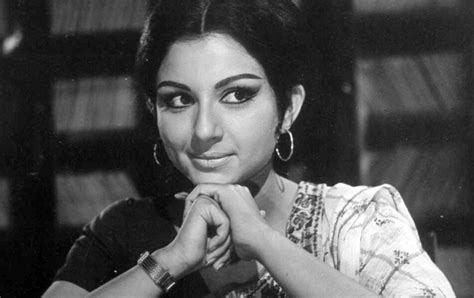
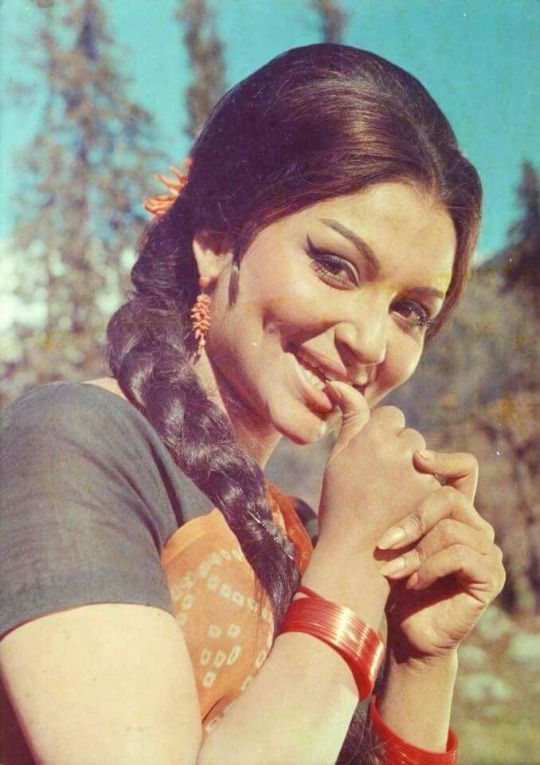
Pola Negri:

A tempestuous green-eyed vamp of the silent screen, she tantalized with both her onscreen and offscreen romances. Rocked a Polish accent - well, once there was sound! A true proficient at promoting herself and using all possible tools to do so - from a dead Rudolf Valentino to a cheetah named Teddy, the latter of which she brought to a press conference.

First European actress to be contracted by Hollywood! She survived poverty and illness to become The Queen of Tragedy, she divorced a count to date stars like Charlie Chaplin and Rudolph Valentino, then spent the rest of her life living with Margaret West in what could have been a romantic relationship.
I don't have much to say about her actual career, personal life, etc. but I just need everyone to see how hauntingly beautiful her face is. I haven't been able to stop thinking about her since the first time I saw her LOL like its pretty clear why she was such a star

251 notes
·
View notes
Note
Hi, I want to ask a question. I've been seeing many posts about how the situation in I/P is like the situation is Kashmir, where India/Israel are colonizing Kashmir/Palestine. Can I get your thoughts on this? I love your blog, thank you for what you do!
Dear God, the terminally online community is back at it again, huh? India....colonizing Kashmir?... What?
Okay, so no, India is not colonizing Kashmir. If anything it is Pakistan. They took over land, claimed it as theirs and spread terrorists all over the area. They handed over OUR land to China. The Kargil War was a result of us trying to stop them from taking over MORE LAND. Kashmir was, is and always will be a part of India.
Meanwhile, Israel, the only land of the Jews has been struggling to maintain an identity between attacks by Islamic extremists. They were gravely hurt on October 7th, and like any country would, retaliated. Now, the thing about the difference between civilian deaths on both sides is that Israeli buildings have bunkers built into them. It is building CODE. Hamas keeps launching rockets, so they had to do it to protect their civilians. Meanwhile, Hamas steals aid trucks sent by countries to pad their booby-trapped tunnels and hide behind their civilians. And then they scream that Israel is killing its people on purpose. Really shows you how propaganda works, doesn't it? Leftist antisemites now just have to reason to harass Jews, even if they're critical of the Israeli government.
It's like, Oh you're a Jew? Well are you one of the "good Jews"?
Now y'all know why I stand with my Jewish friends.
Thank you for your kind words, they mean so much to me! <3
61 notes
·
View notes
Text
(WIP) Resources Masterlist
*Note: a lot of these are geared toward American and/or English-speaking populations, my apologies, but plenty of them are global!
GENERAL
End Global Genocides Master Document | Another Master Doc | Tumblr Post - Links to Informational Articles/Websites
Donations: Fundraisers - Gaza, Sudan, Congo, and more | Doctors Without Borders | Care.org | World Central Kitchen | Operation Olive Branch | Islamic Relief USA
Discord: Global Strikes Against Genocide Discord Server
SUDAN
Eyes on Sudan | Sudan Solidarity Collective | Linktree - Sudanese Diaspora Network
Info: 500 days of war... | Sudan War Explained - Interview
Petitions/Letters: Stop Sudan War | Justice for Human Rights Abuse Victims in Chad and Sudan | Stop Arming Saudi Arabia and the UAE to stop the Sudan genocide
Donations: Sudan Funds | Tumblr Masterpost - Sudan Orgs/Fundraisers | Water for South Sudan
ROHINGYA
Free Rohingya Coalition
Info: CNN - Hundreds of Rohingya face drone strikes / ethnic cleansing in Myanmar
youtube
Spotify - Rohingya Culture Interview
Petitions:
Donations: Mutual Emergency Aid 4 Rohingya | Emergency Aid for Rohingya Orphans and Disabled Families
TIGRAY
Tigray Action Committee
Info: Omna Tigray - What's happening in Tigray? | Tghat News | UN Article from Sept 2023
Petitions/Letters: Petition - Demand Aid to Tigray | Stop the Tigray Genocide
Donations: Places to Donate for Tigray Tumblr Post | Ahwatna Relief
DRC
Friends of the Congo | Focus Congo | Congo Resources Tumblr Post
Info: DRC: Inside the world's forgotten war | Congo Genocide Explained - Interview
Petitions: No Tax Dollars to Fund Congo Genocide | Halt the Ongoing Genocide in Congo
Donations: SOS Congo (organized by Goma Actif) | IRC in Congo | Action Kivu
KASHMIR
Stand with Kashmir | Kashmir Masterlist Tumblr Post
Info: Kashmir - Paradise Lost (BBC)
Petitions/Letters: Stop Arming Indian Occupation of Kashmir
Donations: KASHMER
EAST TURKESTAN
Campaign for Uyghurs | Uyghur Truth Project | Camp Album Project
Info: Persecution of Uyghurs in China - Wikipedia
Petitions/Letters: Change.org - Uyghur Muslims
PALESTINE
Jewish Voice for Peace | USPCR Stop Gaza Genocide Toolkit
Info: Wizard Bisan, a Palestinian journalist
Petitions/Letters: Not Another Bomb | Amnesty - Demand a Ceasefire | Tumblr Post with Petitions | Ceasefire Now | (JVP) Tell Congress - Arms Embargo Now
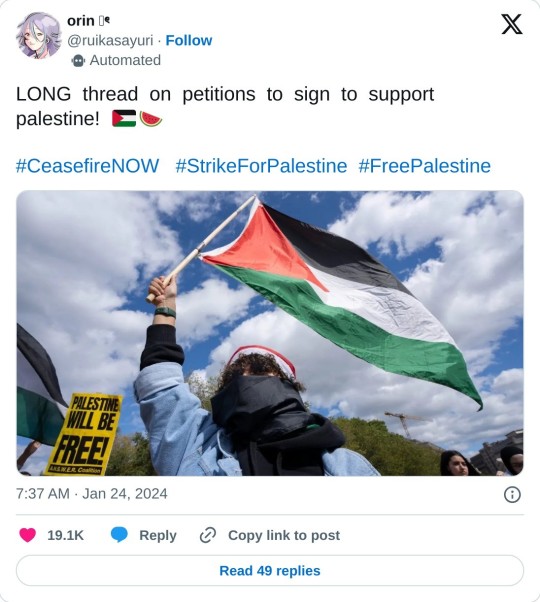
Donations: Gaza Funds | Low on Funds Palestinians Fundraisers | Vetted Gaza Evacuation Fundraisers | Arab.org Daily Click | Middle East Children's Alliance
ARMENIA
Learn for Artsakh | Help Armenians Carrd | Artsakh Genocide Action Toolkit
Info: Denying Your History - Armenian Genocide
Petitions/Letters: Petition - Stop Erasing Armenian Culture | International Recognition of Artsakh
Donations: Fund for Armenian Relief | Armenia Fund | CARITAS Armenia | ARS of Eastern USA inc.
INDIGENOUS AMERICANS
MMIWG2S | Indigenous Action | NDN Collective
Petitions/Letters: Stop sterilizing Indigenous women without consent | Free Leonard Peltier
HAWAII
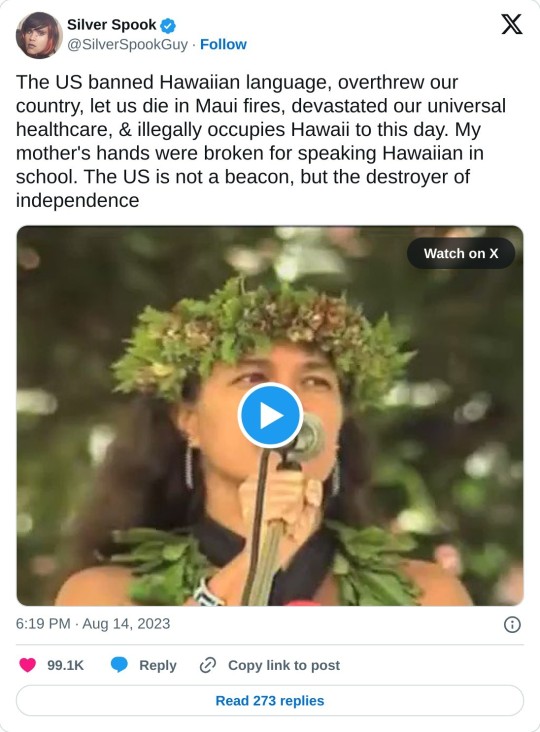
Info: Tourism's Negative Impact on Native Hawaiians | Noho Hewa Film (2008)
Donations: Hawaii Community Foundation
HAITI
Haiti Liberation Google Doc
Donations: Hands Together for Haitians | Haiti Outreach | Hope for Haiti | Twitter Thread of GoFundMes/Donation Links
WEST PAPUA
Free West Papua Website | West Papua Resources/Info Tumblr Post | We Need to Talk about Papua Carrd (last updated 2021 but has good info)
Info: United Nations - Indonesia: Shocking abuses against indigenous Papuans | Twitter Thread of Helpful Articles
Petitions/Letters:
ALSO:
The Kurdish Project
KEEP BOYCOTTING, PROTESTING, AND DOING EVERYTHING YOU CAN! FREE ALL OPPRESSED PEOPLES OF THE WORLD!
If you can't donate, share!
If you have any concerns with the links I've posted, please share! I tried my best to verify everything but please let me know if you are doubtful of something! Also, please please share other resources from people who are directly impacted by these genocides!!
LAST UPDATED SEPTEMBER 16 2024.
#this is mostly for my reference so i can consolidate them in one spot but feel free to reblog#actually please do this info is needed#stop global genocides
19 notes
·
View notes
Text
Time After Time | Chapter One
Pairing: Tommy Shelby x Reader, Tommy Shelby x Original Female Character
Summary: You’ve been told by your mother since the moment you were born that you had the gift of prophecy. Convenient, since you managed to mysteriously transport back into time by one hundred years. What happens when you become wrapped up in the Shelby’s family business after the brothers return from the war? Will you ever get back to your own time or figure out how you got to Small Heath in 1918?
Warnings: language, war, drinking, smoking
ao3 Link | Catch up on tumblr here

Chapter 1: Kashmir
Oh, let the sun beat down upon my face, with stars to fill my dream.
I am a traveler of both time and space, to be where I have been.
— Kashmir, Led Zeppelin
Adjusting your hat, you stepped out of your apartment building and began walking down the road on the gravel, still getting used to the unevenness of the streets as you avoided mud puddles. “Constant dirt,” you mumbled to yourself, watching the bottom of your skirt grow damp despite your careful step. “Constant fucking dirt.”
It’d been two weeks since you woke up in Small Heath, Birmingham, 1918.
Your mother’s voice broke through your brain fog as you walked.
“You have a responsibility, Y/N,” your mother used to say to you with glassy eyes on nights she had one glass too many. “You have to be prepared.”
With a roll of your eyes, you would always ask, “For what, mum?”
And then, like always, your mother would shake her head, cover her mouth with her hand, and whimper sadly at some wild fantasy you knew she was concocting in that head of hers. She never did have an actual answer for you when she got like this.
“You always say that — I have to be prepared, but you can’t tell me what I have to be prepared for. I thought you had a gift — we had a gift? It’s bullshit! Why do you do this to me, mum?!”
That’s usually when the tears would break. Looking back, you should have seen the levee signs for your mother’s sanity. But in the thick of it, especially after your father died when it became an almost nightly ritual, it was just all too much. And completely, utterly, absolutely, ridiculous.
You had the gift of prophecy.
At least, that’s what your mother had been saying since you were old enough to remember. It wasn’t a metaphor, it wasn’t a feeling — it was fact. Of course the specifics of this revelation were always conveniently obtuse whenever you would ask your mother for any details.
It’d been years since you thought about those old fights. But on your last night in 2018, you couldn’t stop your mind from replaying them all. Guilt mixed with frustration plagued your body until you’d finally been able to fall asleep.
That night, you dreamed of hauntingly pale eyes. The face wasn’t one you recognized, but the eyes had you trapped, entranced. Mud circled the handsome face and slowly edged toward the center, toward his eyes. Red liquid began to mix with the mud as you tasted copper on your tongue. You reached out to grab the person before the mud and blood covered the eyes, but was pulled awake by a loud pounding at the door.
And that’s how you woke up in the year 1918.
Since that morning, you were trying to piece together what exactly was going on. You spent the first couple days in disbelief, walking around in clothes you had no knowledge of putting on. You thought for sure someone was playing a prank on you — a very elaborate one. But after interrogating the land lady and neighbors, finding newspapers, and combing through the entirety of the apartment you’d woken up in, you finally came to grips with the fact that you were now living, walking, breathing in the year 1918.
The land lady was little help. According to her, she and her husband had purchased the apartment building six years prior, but in their contract they had to designate that the room you awoke in stay prepped and empty for the impossible-to-predict arrival of a family member. When you pushed for a name, she didn’t have one for you and claimed that money had just been coming in anonymously over the years. While still freaked out yourself, you realized how much you were also freaking Mrs. Tully out, so you thanked her when she informed you that this month’s payment would be the end of that week. You planned to try and figure out what time the next payment was set to be made and to see if you could catch the payee.
Until then, you assessed what you’d found in your apartment: three outfits that all surprisingly seemed to be about your size, and a purse filled with about ten pounds in change. You didn’t know the exact inflation rate amount, but estimated that to be a little over 500 pounds back in your time.
When the end of the week came, your plan failed. No one came to deliver payment and you had to use a quarter of your found money to pay for the rent. You continued to wait to see if anyone would show up, but no one did. And eventually you came to the conclusion that if you were going to actively survive this new existence, you had to get a job.
Mrs. Tully had laughed when you asked her where you could find one. She told you to look in the advertisements of the local newspaper, but most jobs had been taken over by wives of men who’d gone to war.
“Which war?” You’d asked, absentmindedly, earning you a scoff from your land lady.
That’s when you quickly connected the pieces.
THE war. The Great War.
World War One.
Your mother had been a stickler for education, forcing you to take as many classes as you could in grade school. She pushed subject after subject and as many extracurricular activities as she could on you. In retaliation, you found yourself trying to be the complete opposite of the person she wanted you to be, even if it was in stupid little ways.
When your mother wanted you to take up piano, you insisted on learning ballet. Art over poetry. Psychology over economics. Literature over government. Math over science. Even listening to music over watching old movies.
The biggest push back was your mother’s insistence to learn everything about history that you possibly could. You’d fought hardest over that one, questioning why you needed to learn so much history if you could just predict the future.
One way or another, you eventually caved into your mother’s insistence. And while you’d never been properly diagnosed with eidetic memory, your mother had been overjoyed with your insane skill of comprehending and regurgitating so much information. And though you never actually admitted it to your mother, you had grown to really enjoy history.
And now you realized you were on the tail end of that First World War.
And still, you needed a job.
Most advertisements aimed toward women employment were textile factory jobs. While you had many talents, sewing was definitely not one of them. There were openings at the munitions factories, but you remembered reading about the side effects of working with machines and explosives. While you had no problem with blood and considered yourself an active Grey’s Anatomy watcher, you weren’t sure becoming a nurse was such a great idea either.
You were feeling out of your element by the time you finally landed on a local ad.
That’s where you were headed now, dressed to impress and still feeling completely high to the fact that you were 100 years into the past, applying for a bartending job because that’s the only thing you could find that you were good at.
A faint whimper caused you to pause.
It was still early and the streets were rather scarce, so you stopped and listened harder until you could clearly identify the sound of a girl crying. A few steps further toward the alley and you noticed an open window, a girl possibly a few years younger than you was leaning out of it and against the ledge, her hands covering her forehead as she tried to control her breathing.
“Oi!”
You didn’t realize you were staring when the girl shouted from the window, causing you to jump startled.
“Enjoying the fuckin’ show?” The girl asked snidely, using her hands to wipe the tears away from her eyes.
Without thinking, you grabbed the handkerchief from your pocket and walked closer to the window, lifting up your arm to offer it to her. The girl paused, wiping her nose with her nightgown sleeve and eyeing the handkerchief, then you, before accepting the token.
“You won’t tell anyone, you hear me?” The girl asked, her voice still venomous but you swore you could hear a lace of vulnerability in her words.
Your brow creased, unaffected by the girl’s attempt to be threatening. “One, I don’t even know who you are. Two, I don’t know anyone here to tell. And three, who cares if you’re crying? It’s no one’s business but your own.”
The girl, who was maybe closer to your own age now that you could see a bit more of her face, considered your points before chuckling, handing the handkerchief back. You tried to hide your grimace, but you were still super grossed out over the whole concept of handkerchiefs. But you took the stranger’s smile as a good turn and stifled your grossness by putting the cloth back in your pocket.
“You must be new around here?” The girl asked, sitting up straighter in the windowsill to get a better view of you.
“Yeah,” was all you offered, avoiding her gaze as you looked ahead at the pub at the end of the lane. “I saw the advertisement for help at the Garrison. I was on my way to apply.”
She shook her head, taking a moment to look you up and down. “Doubt Harry’ll hire you. He’s got a thing about not hiring pretty girls. Even with all the men away, he still won’t do it.”
You huffed. “Well, I’ll have to make him listen to me, then. If I’m going to be a good barten— uh, barmaid, then I’ll need to get used to making stubborn men get over themselves.”
That made the girl laugh. “Bet you a pence that you won’t make it past the interview.”
“You’re on!” Despite yourself, you felt yourself grin as you reached up to shake the stranger’s hand.
She giggled, “I’m Ada, by the way.”
“Y/N.”
A moment of silence fell between you after the introductions. You were about to attempt a polite retreat before Ada cleared her throat.
“No one’s dead, by the way,” Ada finally said. “I know I shouldn’t cry like that until… but sometimes it’s just too much.”
Your heart dropped as you began to put the pieces together. Kicking yourself a little for being so naive, you hoped not offering any condolences or asking the right questions hadn’t been a red flag or anything. But it almost seemed like Ada had been appreciative of your ignorance.
“Family or sweetheart?” you asked. You felt a little weird using the word sweetheart, but you hadn’t seen a ring which ruled out using husband and honestly you had no idea if people were using the word boyfriend yet. But the way Ada’s cheeks blushed, you knew you’d guessed something right at least.
“Both, actually. Last I knew they were in France. My brothers and—“ her blush grew deeper as she rolled her eyes. “God, why am I embarrassed to tell a complete stranger. But it’s a secret, no one’s to know. I just—“ she groaned, obviously frustrated.
You leaned against the side of the apartment. “Bastard stole your heart and took it with him to war, huh? And now there’s nothing you can do but ache and fear until he returns.”
“Exactly!” Ada shrieked.
You gave her a sympathetic smile. “And it’s a secret? Let me guess, brother’s best friend?”
Ada’s eyes widened. “You sure you’re not from around here?”
“Promise,” you chuckled. If she only knew the half of it. “I had the hots for my best friend’s older brother as a teenager. We had a bit of a secret fling before she found out and it caused a muck. But I can still recognize the blush and frustration. Please tell me this man at least let you steal his heart as well?”
The blush only deepened as Ada finally began to smile again. “I think so,” she answered quietly, almost scared to answer the question. “He’s just been gone so long now. And the stories — the war. I just hope the Freddie that comes home is the same one that left.”
Flashes of those history classes blew through your mind. The lessons on soldiers who came home from the First World War. Without realizing it, you felt yourself sending a small prayer to whoever was listening that this stranger’s loved ones weren’t victims to some of the more gruesome lessons you remembered from your youth.
“— I just wish we knew how much longer it was all going to be. I don’t know how much more of this I can take.” Ada’s words were small again.
“November 11th, 1918,” you accidentally said, still lost in your own memories as you unwittingly attempted to smooth Ada’s worry.
“November?” Ada repeated, pulling you back to the moment. Your eyes snapped back to the stranger’s realizing what you’d done. “That’s just in a few months, how could you possibly know that?”
“Uhm,” you began to sweat. Shit, shit, shit. What if you’d already fucked up just two weeks after jumping back in time? Damn that Ashton Kutcher movie that you definitely didn’t pay enough attention to. You had to play it cool, so you kept your composure and shrugged your shoulders. “Just a guess. You know, with America’s help now, it can’t be too long—“
“Ada!”
The sound of an older woman’s sharp voice within the house caused the girl in the window to jump and turn backwards.
“Shit, I was supposed to get the water heated for my aunt,” Ada hissed as she checked the clock on the wall before rising from her seat. “Good luck with Harry, and come by later to let me know if I’ve won the bet!”
Ada didn’t stay to get a response, but that was okay because you were about to start hyperventilating. What the hell was wrong with you, throwing out dates that hadn’t happened yet?
You leaned against the stone wall and tried to flip through the rolodex of history books you’d read over the years to see just how badly you’d fucked up.
You knew that November 11, 1918 was officially considered the end of the war, but knew that was also littered with treaty dates and peace signings that were scattered over the next couple months and even years. So maybe November 11th wasn’t something that was officially recognized at the time? And you had no idea exactly how long news spread of war ending nowadays — it wasn’t like the newspapers were breaking news the same way it’d been in the 21st century… right?
And besides, Ada had only repeated November, so maybe she didn’t hear you say the exact day. Maybe she believed that it was just a frivolous guess. Maybe she even would think it was just the hopeful wishes of a well-intentioned stranger taking pity on her.
Either way, it was probably a good idea to try and steer clear of the girl for at least a little while until she forgot. Which was kind of a shame, you realized. Ada seemed like she could have been a good friend.
You took a deep breath, having reasoned with yourself enough to minimize the threat and began walking back toward the pub.
What you didn’t see was Ada’s aunt lean against the windowsill and watch you walk away, having definitely heard you predict the full date of the end of the war.
———
“You’re too pretty,” Harry Fenton said sadly, as if it pained him that this was the reason he was having to reject your request.
Damn Ada, you cursed to yourself, wondering if you were really going to let the girl know she’d won the bet. The reasonable side of you knew what he really meant by that. You’d be hit on, groped, or worse — and he didn’t want to be responsible for that. But you couldn’t let that stop you.
“I’ve been a bart— barmaid before. I promise you, Mr. Fenton, I can handle myself against a hoard of drunk men. I can be charming, but I can also hold my own. I’ve done it plenty of times.”
Harry’s brow creased. “You a whore?”
“Excuse—“
“I won’t have a whore workin’ my pub. It gets too messy—“
“No,” you said firmly. “I’m not a whore. For you, for them,” you waved your hand to the empty seating area. “Not for anyone. I just know how to defend myself against drunken imbeciles. Please, I’m a good barmaid. I know drinks, I know pours, I know customer service and how to defuse tense situations. This is what I’m good at.”
Harry looked away, a huff leaving his lungs as he considered. You could tell he was still trying to think of another excuse.
“Please,” you begged softly, waiting for him to lift his head back up.
As he did, he sighed, and your heart lept at the familiar sound of defeat. “Can you read?”
Your land lady had asked you the same question, but this time you didn’t laugh. “Yes,” you answered calmly. “I can write and type as well.”
“What about numbers?”
Your brow creased at his question. “Can I read numbers?”
“Yea, can you add ‘em up and stuff.”
“Oh!” You realized now what he was asking, slightly embarrassed by your misunderstanding. “Yes, I’m very good at math as well. Don’t even need a calculator.”
“A wa’?”
You cleared your throat. “Um, nothing. I just meant that I’m very good with numbers.”
Harry nodded. “Fine. I need help with stockin’ and the inventory. Come in tomorrow morning so I can show you the books and how we get the place set up, then we’ll see how you can handle your first bar shift. I won’t promise anything, but I believe in fair chances.”
You felt giddy at the opportunity and held back the urge to run over and hug Harry. You definitely didn’t need to give him any more reason to think you were a prostitute than he already had. Instead, you smiled and nodded, thanking Harry again for the chance before promising that he wouldn’t be disappointed.
“Better not,” he huffed, though you could tell there was a hint of humor at your excitement. “Fair chance don’t mean second chance. Things’ll be easier now, but I can’t make any promises if the war ends and the men return.”
November 11th, you repeated, this time to yourself. You’d already been too cavalier for comfort with Ada — you had to be careful.
“Understood.”
———
A month went by and you were beginning to grow more acclimated to your surroundings. You still had no answers as to why or how you were here, and you were beginning to believe that you never would.
In the meantime, you’d gotten used to your new job at the pub. It was a pretty easy gig compared to what you had expected. But Harry kept reminding you that their best customers were out on the lines. He’d often reminisced about his short-lived experience in the war, still walking with a limp that he believed wouldn’t ever fully recover.
When he wasn’t doing that, he was simultaneously fighting and gushing over your inventory management and production system development. It wasn’t an easy feat, as you could immediately tell there was so much disorganization going on and Harry just couldn’t wrap his brain around why you insisted on such rigorous systems. Eventually, you both learned to bend, especially when sales began to rise and spend waste decreased nearly 50% after implementing some of your suggested practices.
Outside of the pub, your friendship with Ada began to grow. Your original plan to avoid the girl for a few days after getting the job went up in smoke when Ada sought you out, believing you were trying to rob her of her betting win. You noticed that despite Ada’s claim to have lived in Small Heath for most of her life, she didn’t have many friends. In fact, as you grew closer, you came to believe that she didn’t have any proper friends outside of you and the girl’s family. You didn’t push the query, not yet feeling comfortable enough to ask and also worried about running off the only person aside from Harry who talked to you. As the days moved along, an odd thing began to happen: the closer you got to Ada, the more the other women in the town came to properly avoid you. Thinking it was just your imagination at first, you quickly realized that no one was bothering you in the streets or causing you any trouble at the bar or shops. You weren’t sure why exactly, but at least you had a friend.
Ada’s aunt, Polly, had been harder to warm up to than Ada had. You were completely intimidated on all accounts when Ada introduced you. The woman commanded the room when she walked in with her strong voice and sharp, beautiful features that made it both pleasing and terrifying when she smiled at you. Not that she’d smiled at you much. You felt constantly studied by the older woman, as if she was trying to pull out all your secrets.
But you held your own, and built the walls tall around your secrets, you stepped lightly around what you said, careful not to use any out-of-date slang or accidental predictions
Eventually, you began to win the woman over with your intelligence. When Ada found out how good you were with numbers, she asked you to help out in the book house one day. Aside from illegal horse racing bets, you were pretty clueless to the full extent of Ada’s family’s operation and influence to the town.
What you did learn was that Polly was running the organization while Ada’s brothers were away. The shop mostly employed women and men who hadn’t volunteered for the war. Polly had been furious that Ada allowed you access to their books without her permission — until you pointed out some discrepancies.
“Either this man can’t add correctly or he’s skimming money,” you interrupted when Ada and Polly began shouting.
After that, Polly threw all the books at you, and immediately began to whip everyone in line. She kept your new employment a secret though.
“No need to go lettin’ them know all our secrets, eh?” Polly had said with a wink when she offered you the job. Then she gifted you with her first smile, a wicked one with a mirthful glint in her eyes that made you both nervous and excited.
Over the month, you had hardly any spare time, which you liked — it left little time to think and it kept your purse full enough to keep your apartment and feed yourself. You kept going with your job at the Garrison, working with Polly twice a week on your days off to go over the books.
Everything was beginning to feel like a well-oiled machine.
Until November 11, 1918.
>> next chapter
<< chapter masterlist
#peaky blinders#tommy shelby#thomas shelby#tommy shelby x reader#thomas shelby x reader#tommy shelby x oc#peaky blinder fanfic#peaky blinder imagine#fanfic#mine#time after time
900 notes
·
View notes
Text
Joshua Hangshing’s 7-year-old son died less than an hour after being shot in the head. But it wasn’t the bullet that killed him.
On June 4, Hangshing set off from a relief camp in the Kangpokpi district of the northeastern Indian state of Manipur. He and his family had moved there for safety after fighting broke out the month before between the state’s majority Meitei community and the minority Kuki-Zo. Clashes had erupted that day just a mile away from the camp, so Hangshing ventured out to fetch water in case they needed to take shelter for a prolonged period.
As he returned to the camp, he saw Tonsing, his youngest child, waving gleefully at him from a first-floor window. Then Tonsing fell, shot in the head. “It couldn’t have been a stray bullet,” Hangshing says. “I suspect it was a sniper.”
Tonsing was still breathing when Hanshing reached him, but he had lost a lot of blood. When an ambulance arrived, Hanshing stayed behind while his wife went with their son to the nearest hospital, 10 miles away in the capital city of Imphal. They were halfway there when they were ambushed by militants, who set fire to the ambulance. Tonsing and his mother, Meena, were burnt alive.
The brutal murder of two innocent people is the kind of horror that should have made the news across India, even across the world. But Hanshing’s story is only coming out now, months on, because of an internet blackout covering the whole of Manipur. At least 180 people have died, and more than 60,000 people have been made homeless. Villages have been set alight and neighbors have lynched neighbors as the authorities fail to control the escalating violence. For three months, hidden from the eyes of the world, Manipur has burned in the dark.
The relationship between the predominantly Hindu Meitiei community, which makes up 53 percent of Manipur’s population, and the Kuki community, which accounts for 28 percent and is largely Christian, has long been frosty.
But the situation has deteriorated rapidly this year. A military coup and civil war in neighboring Myanmar has led to thousands of refugees moving into Manipur. Many of the new arrivals are of Kuki-Chin-Zo ethnicity, who are culturally and ethnically close to the local Kuki population. Some in the Meitei community have seen this as a threat to their political dominance. In late March, a court in Manipur awarded the Meitei “tribal status”—a protected status that gives them access to economic benefits and quotas for government jobs, and allows them to purchase land in the hillside areas where Kuki tribes are concentrated.
Kuki groups say giving the majority community access to minority protections will strengthen the Meitei’s stronghold over the state. Meitei groups accuse Kukis of importing weapons from Myanmar to fight a civil war. On May 3, some from the Kuki community staged a rally in Churachandpur district to protest the court ruling. After the protest, an Anglo-Kuki War memorial gate—marking a war between Kukis and the British in 1917—in Churachandpur was set on fire by Meiteis, which triggered riots that killed 60 in the first four days.
It was just the start of a wildfire of violence that would spread across the state, with barbaric murders, beheadings, gang rapes, and other crimes. Outnumbered, the minority Kukis have suffered most.
But as the fighting began, on May 4, the Indian government did what it has done time and time again when faced with internal conflict. It shut off the internet.
The national government has the power to order telecom providers to stop providing fixed-line and mobile internet, using an emergency law. It did it 84 times in 2022 and 106 times in 2021, according to Access Now, a nongovernmental organization that tracks internet disruptions.
Most of the shutdowns were in the disputed territory of Kashmir, but they have been applied across the country. In December 2019, internet shutdowns were imposed in parts of Delhi, Uttar Pradesh, Karnataka, Assam, and Meghalaya after protests over a proposed citizenship law that would have rendered hundreds of thousands of Muslims stateless. In January and February 2021, the internet was disrupted around Delhi, where farmers were protesting agricultural reforms.
The justification for these shutdowns is that it stops disinformation from spreading on social media and helps keep a lid on unrest. In May, in Manipur, the government said the blackout was “to thwart the design and activities of anti-national and anti-social elements and to maintain peace and communal harmony … by stopping the spread of misinformation and false rumors through various social media platforms such as WhatsApp, Facebook, Twitter, Instagram, etc. … ”
It didn’t work.
On the first day of the shutdown, a Meitei mob went on a rampage in Imphal, seeking out Kukis to attack. As the violence spread, two young Kuki women in their early twenties huddled in their room above a carwash, where they worked part time. But the mob found them. Witnesses told the women’s families that seven Meitei men barged into their room and locked the door from inside. For two hours, the door remained shut. People outside could hear the screams of the women, which became muffled with time. When the door opened, the two women were dead. The families are certain their daughters were raped before being murdered.
The father of one of the women, whom WIRED is not identifying in order to protect the identity of his daughter, says he was told by a nurse at a hospital in Imphal that his child had been killed. Nearly three months after her death, her body is still in Imphal, along with dozens of unclaimed bodies rotting in the city hospitals because the Kuki families in the hills can’t go to Imphal Valley to claim them.
“It was her dream to become a beautician and start her own parlor. She always wanted to be financially independent,” the father says. She had finished her course in Imphal and was tantalizingly close to living her dream. About two months before the incident, she had rented a place in the city where she could open her beauty parlor. “She took up a part-time job to support her dream,” her father says. “She was excited about her future.”
The violence between the two communities has spiraled. Nearly 4,000 weapons have reportedly been stolen from the police, according to local media. Some Kukis have accused the police—many of whom are from Meitei communities—of standing by while Kukis are being attacked, and even of supporting Meitei extremist groups. Hangshing’s wife and son were killed despite a police escort. “How did the mob burn down the ambulance in police presence?” he says. “What did the police do to protect my wife and son?”
The police in Imphal declined to comment.
Today there is almost complete separation between the two communities, both of whom have their private militias protecting their territories. Kuki areas in Imphal are completely deserted. Meiteis in Kuki-dominated districts have been driven out of the hills.
At a relief camp opened in a trade center in Imphal, Budhachandra Kshetrimayum, a Meitei private school teacher, says his village, Serou in the Kakching district, was attacked by Kuki militants on the night of May 28. “The firing started out of nowhere,” he says. “They barged into the village and began torching the Meitei houses.”
Kshetrimayum had two options: either stay inside and be burned with his house, or run to the house of a local lawmaker for safety and risk being shot dead on the way. He chose the latter. “Luckily, I survived the firing and reached his house, where several other Meiteis were hiding,” he says. “His bodyguards were on the roof, firing back at the Kukis so they couldn’t come and get us.”
The next morning, Kshetrimayum found his house reduced to rubble.
Not too far from his home lived the widow of a leading fighter for India’s independence against Great Britain. “When I went closer, I realized that they had burnt the house with his 80-year-old wife inside it,” he says. “I could see her skull amid the debris. Since that night, I have been living in relief camps. I wear other people’s clothes. I eat other people’s food. I am a refugee in my own state.”
These aren’t isolated stories. Across the state, I heard eyewitness accounts of lynchings and murders, rapes, riots, and the burning of homes. After largely ignoring the crisis in Manipur for weeks, over the past couple of weeks, journalists from across India have descended on the state, thanks to a single video that leaked out from under the shroud of the blackout.
It’s not clear how the footage got out. But the 26-second video was posted on Twitter on July 20. It shows two Kuki women in Kangokpi being stripped and paraded naked by a mob. The women’s families say they were later gang-raped.
The video shook the conscience of India and shed light on the gravity of the situation in the state. It compelled Prime Minister Narendra Modi to speak about Manipur for the first time, 77 days after the violence broke out. “Any civil society should be ashamed of it,” he said.
After the police arrested one person accused of participating in the attack, N. Biren Singh, the chief minister of Manipur, tweeted that strict action would be taken against all the perpetrators. But the incident had happened months before, on May 4, the first day of the blackout. The husband of one of the women in the video claims that the police were on the spot when it happened, but did nothing to stop it. In other words, the police were compelled to take action after the video went viral. And this is just one sexual assault—one of many crimes—that’s happened in Manipur since May. The perpetrators in other cases are roaming free because there is no video to shame the authorities into pursuing them.
"The video that went viral is just the tip of the iceberg,” says TS Haokip, president of the Kuki-Zo Intellectual Council, an NGO formed by Kuki writers and teachers. “It is one case in which the state has acted because it went viral and caused a great deal of embarrassment to the state. But what about other victims who have suffered in obscurity?"
Indian authorities say that internet shutdowns like Manipur are done to preserve the peace, to stop misinformation spreading online and reassert control. Experts say they have the opposite effect. They allow impunity for crimes and for those who fail to pursue them. Had locals in Manipur been able to draw attention to the situation as it got out of control, the anarchy that followed might have been avoided. But the silence over the state meant the national government could feign ignorance. Human rights groups said they couldn’t collect evidence of violations or distribute them to colleagues overseas.
The blackouts cause further disruption to an economy made fragile by the violence, and hinder aid groups as they try to collect funds for relief work.
Young Vaiphei Association, a nonprofit organization, operates five relief camps in Churachandpur district, housing 5,000 people. Lainzalal Vaiphei, convener of the relief committee, says they’ve had to raise funds door-to-door. “But because the state is in a limbo, people have suffered economically as well. They don’t have money to donate.” Had the internet been operational in Manipur, the organization could have tapped donors from outside the state through social media, and raised money for medicines. “We are barely managing our resources,” Vaiphei says.
In such a volatile atmosphere, shutting down communications doesn't stop misinformation. Rumors always spread fast in conflicts; blacking out the internet often just means that there’s no way to verify whether the accounts that are spreading them are genuine.
“The disinformation still spreads but it is not being countered,” says Raman Jit Singh Chima, Asia policy director at Access Now. Most fact-checkers are independent journalists or operate in small newsrooms. Even if they can fact-check a doctored video or a false claim, they have no way to spread their work widely.
This can help fuel violence, creating monopolies on information and allowing more extreme voices to dominate. “Shutdowns like these actually benefit the perpetrators in a conflict situation,” Chima says. “Whoever is more powerful or networked on the ground gets to set the narrative.”
As the two women in the July 4 video were paraded around the village, the inebriated men around them shouted, “We will do to you what your men did to our women.” The men claimed to be “avenging” a Meitei woman who had been allegedly raped and killed in the Kuki-dominated district of Churachandpur. A photograph claiming to be of her dead body wrapped in a plastic bag had made the rounds in Manipur. Except the woman in the photograph was from Delhi. The story was a fabrication.
The violence in Manipur has ruptured communities and left families with no way back to their old lives. For Neng Ja Hoi, a relief camp in K Salbung of Churachandpur district is now her home. On May 3, her husband, Seh Kho Haokipgen, was lynched while guarding their village of K Phaijang. Violence broke out and the police fired teargas. “He fell down during the commotion,” says Neng. “He somehow managed to get up but his vision was blurred because of the teargas. He ran for his life but he ran toward the Meitei mob, which beat him to death.”
Neng hasn’t really come to terms with her husband’s passing. “He was a religious pastor, and he traveled quite a bit for work,” she says, cradling her 11-month old baby, tears rolling down her face. “I tell myself he is still on one of his long religious journeys. He was the sole breadwinner of the house. How will I look after my kids?”
She sleeps in a tent in a small room with her three children. Her few possessions are crammed on a bench nearby. “I grabbed whatever I could from our house and ran with the kids,” she says. “They will grow up here.”
The warring sides have drawn something akin to battle lines in Manipur. Abandoned homes, charred vehicles, and scorched shops line the borders between communities. Both groups have set up bunkers in deserted villages. The only people here are volunteers from “village defense forces” with guns, guarding the territory from people who used to be their neighbors. The military is deployed in the buffer zone. Venturing into enemy territory is a death sentence.
That is exactly why Joshua Hangshing didn’t get in the ambulance with his son Tonsing. He is a Kuki. If he had accompanied his son to Imphal, there was no chance the two would have survived. But a hospital in a Kuki area was two hours away. With a bullet in his head, Tonsing had to be taken to the nearest possible facility. Hangshing’s wife, Meena, was a Meitei Christian. Even though she belonged to the minority among the majority Hindu Meiteis, the couple thought her presence in the ambulance would keep them safe.
As we talk about the breakdown in trust between communities, Hangshing reminisces about meeting Meena in the mid-2000s. He was working in Imphal, and Meena would pass his office to attend singing classes. “She had a lovely voice,” he says with a wistful smile. For them, it was love at first sight. It didn’t matter that they belonged to different ethnicities. “Her mother was against it initially,” he recalls. “But she came around.”
He has now moved to Kangpokpi Town, away from his village, which is too close to the border with Imphal. He doesn’t think he’ll go back. But he hopes that reconciliation between communities is possible. “If everybody who has suffered starts thinking about revenge, the cycle of violence will never stop,” he says. “The Bible has taught me to forgive.”
On July 25, the state partially lifted the blackout, allowing some fixed-line connections back online—with restrictions. However, most people in the state rely on mobile internet. Apar Gupta, a lawyer and founder of the campaign group the Internet Freedom Foundation, said the changes only benefit a “tiny” number of privileged people. “It is my firm belief the internet shutdown is to serve state interests in avoiding accountability and contouring the media ecology than any evidentiary law and order objective," Gupta tweeted. Manipur is still mostly in the dark. And while the violence has subsided as both sides stay within their territory, it hasn’t died out completely. In the border zones, shots still ring out. It’s still smoldering, and could burst back into flames at any time.
7 notes
·
View notes
Note
Hmmm, that wasn’t me. But I can see why you think it was
I bitch about my white stepmom, but her family while did treat me and my sister like part of them
Now I did a huge fuck up so I’m estranged. But my little sister is still very close to them
Yet I always saw the issues because the left allow people with toxic treats of my stepmom goes uncheck also allow them to hide their bigotry
The left: All men are trash!
Black men: Hmmmm?
The left: I mean white men!
It’s like the Israel/Palestine conflict and many Jews feel betrayed. Like Jews, the left may have said “Fuck Columbus/Colonizers!” a lot. But they never hated the atrocities they committed. They hated that the non whites were on the loosing side of the wars, a long time ago
Take a look at Killmonger, an embodiment of Black Israelite racist view on the world who turn himself into a weapon of cia imperialism. AND destabilized Wakanda so he can make his own empire where black people was in the top
(Even though pre phase 4 Nick Fury, War Machine, and Falcon would have killed his ass.)
Also someone lives in the Chicago area, if the hood rats got Wakandians tech. They wouldn’t overthrow white people. They would kill each other more
In high school, there was a story about a gangster being a son of a rival into a alley and killing him
Then one Halloween, a Latina girl was killed in a crossfire while fucking trick or treating
But …certain n-words people like Killmonger overlook the horrific things we do to each other
Then there the women king, which expose people to the horrific actions of what Africans did to each other. Not to mention I finally learn who cut my ties to Africa
The French and British should have asked the USA to send some African soldiers to help them out. Though we would probably make the fall of  Carthage look like a joke
Trailing off, but why the fuck African Americans were never taught about they in school?
No seriously I demand answers to it wasn’t taught in schools to the point Viola Davis basically did a black “Jews lionizing the Nazis” or birth of a nation movie for female empowerment
The Amish know why their ancestors went on the mayflower
The Irish and Italian descent Americans knows why they are in America
Steven Spielberg did a fucking kids movie loosely based off his grandfather as a child traveling to America. Where it most famous song is “There are no cats in America!” JEEEZ I WONDER CATS ARE SUPPOSED TO BE A REFERENCE TOO
Also Muslims spin a tail saying they always been peaceful and such. Hmmm what happened 52 years ago during the Olympics? I think Robot chicken did a parody of https://youtu.be/vuQIh0mHGrI?si=1jSOKkrYfPIZCvim
But that the thing about the I/P, I asked Dave, tumblr local libertarian and shitposter. Why do modern feminists and Hitler sound so a like? Now he pointed out that both groups believe in conflict theory and yep.
Jews, the left only used the Holocaust as a way to bash white people. They never care about you as a people. So they would automatically see you as evil to protect the innocent Muslims
(I don’t think all Muslims are evil. But they act like feminists saying that they group never had bigotry and such)
And people think Jews would be perfectly safe after Israel dislove, I follow a Hindu blog that reblog the Kashmir Hindus genocide
That happened in the 90’s
Lord’s know what would happen to Israel if they fall
It's amazing the things folks do in the name of nation or religion, heartbreaking too.
In the name of family makes some more sense, we should focus on humanity instead, but that's not gonna be a huge thing I don't think since we tend to use that as a way to bash other people and ideas anyhow.
wish we could just stop hurting each other, all the yelling and screaming about pollution I imagine war is going to be one of the bigger drivers of climate change, at least the part that humans are responsible for.
Maybe some day, folks can change their focus.
As for your family, hopefully you can get bridges mended eventually at least to the point of being cordial.
Needs to be far less anger in the world
2 notes
·
View notes
Text
War: Something to answer for
Let me tell you a story
"God has a lot to answer for"
Same Story
Empty bullets hit a plane
a note inside reads
"they are forcing us
this is all we can do"
War in Europe
War in Sudan
War in Congo
War in the flags that fly half high today
This blood isn't mine.
It is borrowed, for the occasion.
Another story
two boys drop their guns,
share a cigarette and don't die just yet
War in Maghreb
War in Ethiopia
War in the Water
War in the air
Was it meant to be this way?
What if today the bombs just
floated by and didn't explode
What if no one had to loose a home
But war in Myanmar
War in Ukraine
War in Kashmir
and what they barely call a war
In what they refuse to call a state
What if I told you a story?
A woman steps of her executioner's foot
"sorry, I did not mean too"
and looses her head.
War in the clouds
War underground
War on the sand burning to glass
and war in the trees burning to smoke.
War seen through children's eyes
in rubble they called home once.
A newer story, and this one I heard
first hand, from a witness.
"when the bombs come
we hold class in the basement"
or the same story
Windows made from PVC and Polyethene wrap
War for hearts that have long stopped beating
and minds that have long stopped thinking
War on school grounds and kindergartens and parks
War on everyone
white tents, red blood, red crosses
green cars, green jackets, black guns
war on us
one last story
a tale as old as time
"we have a lot to answer for"
#poetry#words words words#anti war#war#military#for people#not for states#free palestine#free ukraine#myanmar#rohingya#I don't know how to make this not depressing
2 notes
·
View notes
Text
Adam Yosef

Birth : 1981
Occupation : Journalist,LGBTQ+ Activist
Gender : Male
Ethnicity : South Asian, Arab
Sexuality : Pansexual
Religion : Islam
Adam Yosef is a British journalist, photojournalist,LGBTQI+ activist and political activist.He is co-founder of the Stand Up To Racism Birmingham Chapter, Birmingham Against LGBTQI+ Hate, & organiser for Stop the War Coalition.
Yosef has regularly written for the BBC, creating content highlighting issues of socio-politics,diversity,culture,racism and religion.He has also written for the Birmingham Mail,The Forward,IlmFeed, etc. His work also has been featured in The Washington Post, The Mirror and Al-Jazeera.
Yosef is a former member of the Respect Party, campaigning for the party in Birmingham,UK.He supported the Green Party of England and Wales in October 2009.
Early life
Yosef was born in September 1981 in Marston Green,England to a religious muslim family.He is of South Asian and Middle Eastern heritage, with family from India, Kashmir and Iraq.
Career
Public media career
Between 2003 and 2004, Adam Yosef was employed by the Birmingham Central Mosque as a Press & Public Relations representative.He regularly appeared as spokesperson for the trust alongside its chairman, Dr Mohammad Naseem.From 2005, he was Press Officer for politician Salma Yaqoob, the former leader of the Respect Party.He was also Press & Social Media Officer for Salma Yaqoob during the 2010 general election.
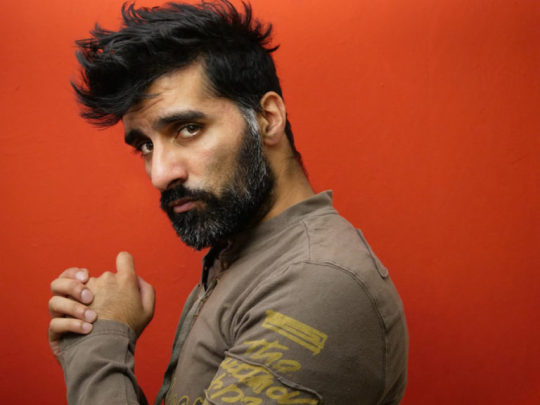
Between 2005 and 2006, Yosef was senior journalist with The Asian Today & Desi Xpress.In 2007, Yosef was appointed deputy editor of national entertainment magazine Ikonz.In 2008, he became a columnist for Fusian magazine. In July 2009, Yosef launched I Am Birmingham, an independent news website serving the West Midlands region, of which he was an editor-in-chief.
In October 2019, public letters written by LGBT+ Labour & LGBT+ Labour West Midlands accusing West Mayoral candidate Salma Yaqoob for homophobia, included claims Adam Yosef was previously employed by Yaqoob and had "called for violence against LGBT+ activists".The letters were shared and endorsed by Labour MPs Wes Streeting & Ben Bradshaw.Then Salma Yaqoob defended her relationship with Yosef, stating: "Adam is a member of the LGBTQI+ community and is an active campaigner for LGBTQ+ rights, who was pivotal in promoting Muslim groups' involvement in Birmingham Pride."Yaqoob's responses to the points made in the letters were backed by LGBT+ activists Owen Jones,Saima Razzaq, Pav Akhtar, who described Yaqoob as an ally.LGBT+ Labour West Midlands has since removed the original letter from their Twitter account.
Activism
In 2003, Yosef co-founded the interfaith Saltley Gate Peace Group, a community peace initiative which was formed in response to the threat of war in Iraq as a part of the growing peace movement in Britain following 9/11, and he was Community & Interfaith Liaison Officer for the Birmingham Stop the War Coalition during this period.He has been actively involved in community work which is related to the Lozells riots, the Alum Rock terror raids & campaigning against radical groups in the Midlands.
In his early twenties, Yosef slept rough on the streets of London before being assisted by The Salvation Army. As a result, founded the Birmingham Food Drive in 2012, which regularly provides food, clothes and essential items to homeless people in the city, and is an active supporter of youth homelessness charity St. Basils.He has also written for Pavement, the magazine for the rough sleepers in the UK.
Between 2011 and 2017, Yosef co-organised the Birmingham Zombie Walk, an annual event which raised thousands of pounds for Birmingham Children's Hospital, as part of an ongoing commitment to the charity.In 2015, Yosef co-founded the Birmingham chapter of the national anti-racism organisation Stand Up To Racism.
In 2021, Yosef co-founded Birmingham Against LGBTQI+ Hate, alongside queer muslim activists Saima Razzaq & Salman Mirza.The group organises rallies against homophobic attacks in the city and has called on city leaders to facilitate better relationships between communities.
Honours
In November 2017, Yosef was nominated & shortlisted for the Inspirational Man accolade at the Birmingham Inspiration Awards.In September 2018, Yosef was nominated & shortlisted for the Excellence in Media accolade at The Birmingham Awards. In 2019 and 2021, he was nominated in the Positive Role Model (LGBT) category for the National Diversity Awards. In 2020, Yosef was presented with an honorary award for 'Outstanding Contribution to LGBTQ+ Equality' award by Midlands Zone magazine.
2 notes
·
View notes
Note
Hi there 👋,
My name is Mohammad, and I’m reaching out in a moment of desperate need. I’m a father of three young children living in Gaza, and we are caught in the midst of a catastrophic war. Our home is no longer a safe haven, and the future here seems increasingly uncertain. 💔
I’ve launched a fundraising campaign with the goal of raising $40,000 to relocate my family to a safer place where my children can grow up in peace and have a chance at a brighter future. 🕊️🇵🇸
Unfortunately, my previous fundraising efforts were abruptly halted when my account was terminated without explanation. However, I remain determined to keep fighting for my family’s safety and well-being. 🫶
If you could take a moment to read our story, consider donating, or simply share our campaign with others, it would make an incredible difference. Every act of kindness, no matter how small, brings us one step closer to safety and a new beginning. 🙏
Thank you for your time, compassion, and support. ❤
https://gofund.me/fd1faea2 🔗
No human should suffer like this, and no human should suffer like this alone.
If you can't donate, here is a website that lets you do it for free every 24 hours:
And lastly, make sure to educate yourself and others about the genocide happening in Palestine:
There are also genocides happening to Congo, Sudan, West Papua, Tigray, Haiti, Burma/Myanmar, Uyghurs, Syria, Kashmir, Cameroon, Armenia, and Kurdistan. This has to stop.
If there are any other conflicts/genocides happening anywhere else, please let me know and I will talk about that as well. ❤️
If I got any information wrong, please let me know and I will fix it. ❤️ Everyone needs to know what is going on in this world and help those who are going through it, and misinformation is only going to make it harder.
As always, free palestine and ceasfire now.
#free gaza#free palestine#gaza genocide#ceasfire now#gofundme#stop the genocide#isreal is committing genocide#please help if you can!#save palestine#save gaza#palestinian genocide#i stand with gaza#all eyes on gaza#all eyes on palestine
0 notes
Text

Message from Mr. Muhammad Shehbaz Sharif, Prime Minister of Islamic Republic of Pakistan, on the occasion of Defence Day and Martyrs’ Day of Pakistan, 06 September 2024:
The 6 September marks a significant day in the history of Pakistan. Every year on this day, the Pakistani nation observes “Defence & Martyrs Day” in a befitting manner. Together we pay rich tributes to the valiant sons of soil and brave heroes of our Armed Forces who fearlessly fought, and defeated India that attacked our motherland across the international border on 6 September 1965. Despite their numerical advantage, enemy designs were thwarted by the valiant Armed Forces and were handed an unforgettable defeat, on all fronts. Fifty-nine years on, the Armed Forces of Pakistan unceasingly show the same ever-ready state of alertness, professional excellence and war preparedness while up-keeping the ‘Spirit of September’ that has become a symbol of resistance and resilience.
The courage and dedication of our soldiers coupled with preparedness of the Armed Forces ensure that we live in a free and sovereign country. We salute the families of Shuhada, whose immense resilience and strength continues to inspire us to commit to the defence of the country. Our Armed Forces, equipped with modern day combat capability, are constantly enhancing their prowess to defend our territorial integrity and sovereign identity.
The Government of Pakistan believes in dialogue over conflict and in cooperation over confrontation. Our aim is to create an environment where all nations can prosper, and address issues like poverty, health, and education. Unfortunately, non-resolution of the Jammu & Kashmir dispute is hampering the pace of positive development in the region. Kashmir is the unfinished agenda of partition that needs immediate settlement as per the aspirations of the people of Kashmir and according to the relevant UN Security Council resolutions through an impartial plebiscite. At the same time, roots of terrorism stemming from our neighbors need to be curbed in our common interest.
I bring to you a message of hope and resolve on this day. Remember, our past is a testament to our ability to overcome adversity. Each time, we have emerged stronger, battle-hardened. On this day, we must draw upon the same spirit of resilience that has always defined us. Azm-e-Istehkam under revised National Action Plan is meant to root out both physical and digital terrorism, once and for all. It is important that we join hands and pave a way to prosperous Pakistan.
Pakistan stands firmly with the people of Palestine. We will continue to raise the issue on all global platforms. The Palestinian people have shown incredible courage in their long struggle against Israeli occupation. We urge the international community to ensure the protection of Palestinian Citizens and stop genocide of innocent Muslims in Gaza.
May Allah bless the souls of our martyrs and provide strength and patience to the families. Let's draw inspiration from them to defend and build Pakistan with the same Spirit of September, and touch the heights of glory, God willing.
Pakistan Armed Forces Zindabad!
Pakistan Paindabad*
0 notes
Text
Delhi Srinagar Leh Ladakh Manali Delhi Road Tour
Embark on a mesmerizing road tour through some of the most stunning landscapes and cultural treasures of Northern India. The Delhi-Srinagar-Leh-Ladakh-Manali-Delhi circuit offers an adventure of a lifetime, combining breathtaking mountain scenery, rich heritage sites, and thrilling road trips. Here’s everything you need to know to plan your epic journey.
Day 1: Delhi to Srinagar
Distance: 815 km
Highlights: Flight to Srinagar, Dal Lake, Mughal Gardens
Start your journey with a flight from Delhi to Srinagar, the summer capital of Jammu and Kashmir. Upon arrival, explore the serene Dal Lake with a traditional Shikara ride, visit the enchanting Mughal Gardens (Shalimar Bagh, Nishat Bagh), and stroll through the old city to witness its unique charm and culture.
Day 2: Srinagar to Kargil
Distance: 202 km
Highlights: Zojila Pass, Drass War Memorial
Depart early for Kargil, a scenic drive that takes you through the breathtaking Zojila Pass. En route, stop at the Drass War Memorial to pay tribute to the soldiers of the Kargil War. Arrive in Kargil and relax, soaking in the serene beauty of the region.
Day 3: Kargil to Leh
Distance: 217 km
Highlights: Lamayuru Monastery, Magnetic Hill, Confluence of Indus and Zanskar Rivers
Continue your journey to Leh, the heart of Ladakh. En route, visit the ancient Lamayuru Monastery, known for its spectacular moon-like landscapes. Stop by the Magnetic Hill and witness the optical illusion of cars defying gravity. Marvel at the stunning confluence of the Indus and Zanskar Rivers before reaching Leh.
Day 4-5: Exploring Leh and Surroundings
Highlights: Thiksey Monastery, Hemis Monastery, Leh Palace, Shanti Stupa, Nubra Valley
Spend a couple of days exploring Leh and its surroundings. Visit the majestic Thiksey and Hemis Monasteries, explore the ancient Leh Palace, and enjoy panoramic views from Shanti Stupa. Take a day trip to Nubra Valley via the world’s highest motorable pass, Khardung La, and experience the unique landscapes and culture of this high-altitude desert.
Day 6: Leh to Pangong Lake
Distance: 223 km
Highlights: Pangong Lake, Chang La Pass
Drive to the mesmerizing Pangong Lake, a high-altitude lake renowned for its ever-changing hues of blue. En route, cross the formidable Chang La Pass, the third highest motorable pass in the world. Spend the night by the lake, enjoying its tranquil beauty under the starlit sky.
Day 7: Pangong Lake to Leh
Distance: 223 km
Highlights: Return journey to Leh
Return to Leh, retracing your steps through the scenic landscapes. Spend the evening in Leh, shopping for souvenirs and experiencing the local Ladakhi culture.
Day 8: Leh to Sarchu
Distance: 260 km
Highlights: Tanglang La Pass, More Plains
Begin your journey towards Manali, stopping at Sarchu for the night. Cross the Tanglang La Pass, the second highest motorable pass in the world, and traverse the vast More Plains, a high-altitude plateau offering breathtaking views of the surrounding mountains.
Day 9: Sarchu to Manali
Distance: 230 km
Highlights: Baralacha La Pass, Keylong, Rohtang Pass
Continue your journey to Manali, crossing the Baralacha La Pass and passing through Keylong. Finally, cross the iconic Rohtang Pass before descending into the lush greenery of Manali.
Day 10: Exploring Manali
Highlights: Hadimba Temple, Old Manali, Solang Valley
Spend a day exploring the charming hill station of Manali. Visit the ancient Hadimba Temple, stroll through the quaint streets of Old Manali, and take a short trip to Solang Valley for adventure activities like paragliding and zorbing.
Day 11: Manali to Delhi
Distance: 540 km
Highlights: Scenic drive back to Delhi
Conclude your epic road trip with a scenic drive back to Delhi. Reflect on your incredible journey through some of the most stunning and culturally rich regions of Northern India.
Conclusion
The Delhi-Srinagar-Leh-Ladakh-Manali-Delhi road tour is a remarkable adventure that takes you through diverse landscapes, ancient monasteries, and vibrant cultures. Whether you’re an adventure enthusiast, a nature lover, or a cultural explorer, this journey promises unforgettable experiences and breathtaking vistas at every turn.

#ladakhtours#ladakhtourpackages#ladakhtosrinagartour#srinahartour#besttourpackage#tourpackage#biketour#tourforriders
0 notes
Text
Latest news international: Why is Pakistan Suddenly Keen to Improve Trade Relations With India?

The Pakistani foreign minister, Mohammad Ishaq Dar, recently said that his country is seriously considering improvement of trade ties with India as per top 10 news today in Hindi. He further referred to the roundabout route via UAE through which Indian products enter Pakistan, making them quite expensive. Of course everyone understands that Pakistan’s economy will get boosted if it resumes complete trade ties with India but then such trade ties can resume only when both sides are willing.
According to the latest India news in Hindi, the Indian foreign minister while responding to a specific question by a reporter about the Pakistani foreign minister’s statement said that Pakistan must meet certain conditions before trade ties can resume.
ALSO READ| Latest International News Today: Middle East Facing Dangerous Escalation of Hostilities Between Israel and Iran
Clearly, the Indian foreign minister, S Jaishankar was referring to the support for cross border terrorism in India that Pakistan was involved in. He said that normal trade ties cannot go hand in hand with support for terrorism.
Now, that’s the reality of the overall status of the relationship between the two countries for the past few years and Pakistan is well aware of it. Yet it made this statement just before the Indian elections.
Can Pakistan compromise its stated position on issues with India?
The question that arises from the Pakistani foreign minister’s statement about improving trade ties with India is whether Pakistan is in a position to meet India’s conditions in this regard.
Readers of the top 10 news today in Hindi are interested in knowing if Pakistan can stop supporting terrorist infiltration into Jammu and Kashmir, without which India will not be interested.
Most observers and analysts covering India-Pakistan relations are of the view that the objective of the Pakistani foreign minister’s statement is not what he said but something else.
ALSO READ| Latest News World: Chinese Meddling in the Civil War in Myanmar has Affected India’s Act East Policy
The Pakistani rulers know very well that they cannot back away from the stand they have taken against India as it would be opposed very strongly by the masses of their country.
Hence, most Indian observers feel that this was just a ploy by Pakistan to check India’s response although some observers have come up with more interesting possibilities of Pakistan’s real intentions.
Did Pakistan make the statement at the behest of other powers?
According to the opinion of geopolitical observers and analysts in some of the top 10 news today in Hindi and other media outlets, it is quite likely that Pakistan did so at the behest of a major power.
ALSO READ| Today Latest Political News: Why is India Getting so Closely Involved in Armenia’s Struggle Against Regional Bullies?
Pakistan has always been a stooge of one or other big power. Before it was created by the British, the founders of Pakistan had undermined the Indian freedom struggle in collaboration with the British.
Post 1947 after its creation, Pakistan became a vassal of the United States (US) since the British had become quite insignificant by then. After the India-China war in 1962 Pakistan saw a great advantage in latching on to China’s coattails as it gave it additional leverage against India.
The intriguing statement of the Pakistan foreign minister about his country’s keenness to resume trade ties with India must have been a Chinese idea just before the forthcoming Brazil Russia India China South Africa (BRICS) summit in Moscow.
ALSO READ| Today Breaking News: Is the US State Department Becoming More Careful While Commenting on India?
China is putting its weight behind getting Pakistan included in the BRICS but since India is against the idea, this could have been a ploy to show Pakistan in good light to the rest of the BRICS members. Both China and Pakistan know about the Indian position on this issue but they want to start a narrative that shows Pakistan being deprived of a place in a growing multilateral body due to opposition from India. One of the conditions for a new member to be admitted into the BRICS is that it should have normal relations with all the other members of the group. Although China’s relations with India are also strained but trade relations between the two nations are still worth over $100 billion. If that façade of normality can be achieved between India and Pakistan with some trade, then Pakistan’s entry into the group will become easier.
AUTHOR: Dev Kumar is an independent geo-political observer, commentator and blogger who tries to look at international issues in relation to India and present a different dimension that has hardly been covered by mainstream experts.
Referral Link: https://www.linkedin.com/pulse/top-10-news-today-why-pakistan-suddenly-keen-improve-trade-singh-kypoc/
#latestnews#breakingnews#top10news#latest news in hindi#latest news international#topnewsheadlines#instareels#viralnews#viralreels#HANBIN#39BillionforBTS#Madonna#TOMORROW_X_TOGETHER#NEET
0 notes
Text
January 10th: The United Nations Meet
Post World War 2, it became known that there needed to be some kind of security to keep those atrocities from happening again. Thus, on January 10th 1946, the First General Assembly of the United Nations was held in London.
But many do not know what the structure of the United Nations is and what in total the group does. Firstly, looking at the Charter of the United Nations from June 26th 1945, the first part reads:
”We the peoples of the United Nations determined to save succeeding generations from the scourge of war, which twice in our lifetime has brought untold sorrow to mankind, and to reaffirm faith in fundamental human rights, in the dignity and worth of the human person, in the equal rights of men and women and of nations large and small, and to establish conditions under which justice and respect for the obligations arising from treaties and other sources of international law can be maintained, and to promote social progress and better standards of life in larger freedom, and for these ends to practice tolerance and live together in peace with one another as good neighbors, and to unite our strength to maintain international peace and security, and to ensure by the acceptance of principles and the institution of methods, that armed force shall not be used, save in the common interest, and to employ international machinery for the promotion of the economic and social advancement of all peoples, have resolved to combine our efforts to accomplish these aims.”
In plain language, They wanted to make sure everyone is safe, countries and their leaders are held accountable for their actions, and that information and socio-economic wealth is assured for all.
To keep things as fair as possible, there was a president of the assembly, 7 vice presidents, and then the committees. Today, with the growth from 51 Nations to 193, there are now 21 vice presidents. There are 6 committees in total, which has not changed over the years. The committees are:
First committee is in charge of disarmament and International Security
Second committee is in charge of economic and financial issues
Third committee is in charge of Social, humanitarian, and cultural issues
Fourth Committee is in charge of Special Political and Decolonization issues
Fifth Committee is in charge of Administrative and Budgetary issues
Sixth Committee is in charge of legal issues
The charter goes into depth about how disputes need to be met with intervention by the security council, how collective security will take place, and trying to keep the peace among the world. International armed forces do exist and were first used in 1948 to observe cease fires in Kashmir and Palestine.
Looking into this closer, they actually are the source of a lot of humanitarian aid, as well as the reason many things have stopped or started in the stance of making sure the world stays safe. If you’re curious about more of what the UN does, feel free to go to their website and have a look around.
Sources:
Mingst, Karen, and Cecelia M Lynch. “United Nations - Peacekeeping, Peacemaking, and Peace Building.” In Encyclopædia Britannica, December 20, 2018. https://www.britannica.com/topic/United-Nations/Peacekeeping-peacemaking-and-peace-building.
“United Nations: Charter of the United Nations.” The American Journal of International Law 39, no. 3 (1945): 190–229. https://doi.org/10.2307/2213923.
Un.org. “United Nations.” United Nations, 2023. https://www.un.org/en/.
Walter H. C. Laves, and Francis O. Wilcox. “The First Meeting of the General Assembly of the United Nations.” The American Journal of International Law 40, no. 2 (1946): 346–73. https://doi.org/10.2307/2193195.
0 notes
Text
Events 1.1 (between 1940-1990)
1942 – The Declaration by United Nations is signed by twenty-six nations.
1945 – World War II: The German Luftwaffe launches Operation Bodenplatte, a massive, but failed, attempt to knock out Allied air power in northern Europe in a single blow.
1947 – Cold War: The American and British occupation zones in Allied-occupied Germany, after World War II, merge to form the Bizone, which later (with the French zone) became part of West Germany.
1947 – The Canadian Citizenship Act 1946 comes into effect, converting British subjects into Canadian citizens.[64] Prime Minister William Lyon Mackenzie King becomes the first Canadian citizen.
1948 – The British railway network is nationalized to form British Railways.
1949 – United Nations cease-fire takes effect in Kashmir from one minute before midnight. War between India and Pakistan stops accordingly.
1956 – Sudan achieves independence from Egypt and the United Kingdom.
1957 – George Town, Penang, is made a city by a royal charter of Queen Elizabeth II of the United Kingdom.
1957 – Lèse majesté in Thailand is strengthened to include "insult" and changed to a crime against national security, after the Thai criminal code of 1956 went into effect.: 6, 18
1958 – The European Economic Community is established.
1959 – Cuban Revolution: Fulgencio Batista, dictator of Cuba, is overthrown by Fidel Castro's forces.
1960 – Cameroon achieves independence from France and the United Kingdom.
1962 – Western Samoa achieves independence from New Zealand; its name is changed to the Independent State of Western Samoa.
1964 – The Federation of Rhodesia and Nyasaland is divided into the independent republics of Zambia and Malawi, and the British-controlled Rhodesia.
1965 – The People's Democratic Party of Afghanistan is founded in Kabul, Afghanistan.
1970 – The defined beginning of Unix time, at 00:00:00.
1971 – Cigarette advertisements are banned on American television.
1973 – Denmark, Ireland and the United Kingdom are admitted into the European Economic Community.
1976 – A bomb explodes on board Middle East Airlines Flight 438 over Qaisumah, Saudi Arabia, killing all 81 people on board.
1978 – Air India Flight 855, a Boeing 747, crashes into the Arabian Sea off the coast of Bombay, India, due to instrument failure, spatial disorientation, and pilot error, killing all 213 people on board.
1979 – the Joint Communiqué on the Establishment of Diplomatic Relations and Taiwan Relations Act enter into force. Through the Communiqué, the United States establishes normal diplomatic relations with China. Through the Act, the United States guarantees military support for Taiwan.
1981 – Greece is admitted into the European Community.
1982 – Peruvian Javier Pérez de Cuéllar becomes the first Latin American to hold the title of Secretary-General of the United Nations.
1983 – The ARPANET officially changes to using TCP/IP, the Internet Protocol, effectively creating the Internet.
1984 – The original American Telephone & Telegraph Company is divested of its 22 Bell System companies as a result of the settlement of the 1974 United States Department of Justice antitrust suit against AT&T.
1984 – Brunei becomes independent of the United Kingdom.
1985 – The first British mobile phone call is made by Michael Harrison to his father Sir Ernest Harrison, chairman of Vodafone.
1987 – The Isleta Pueblo tribe elect Verna Williamson to be their first female governor.
1988 – The Evangelical Lutheran Church in America comes into existence, creating the largest Lutheran denomination in the United States.
1989 – The Montreal Protocol comes into force, stopping the use of chemicals contributing to ozone depletion.
1990 – David Dinkins is sworn in as New York City's first black mayor.
0 notes